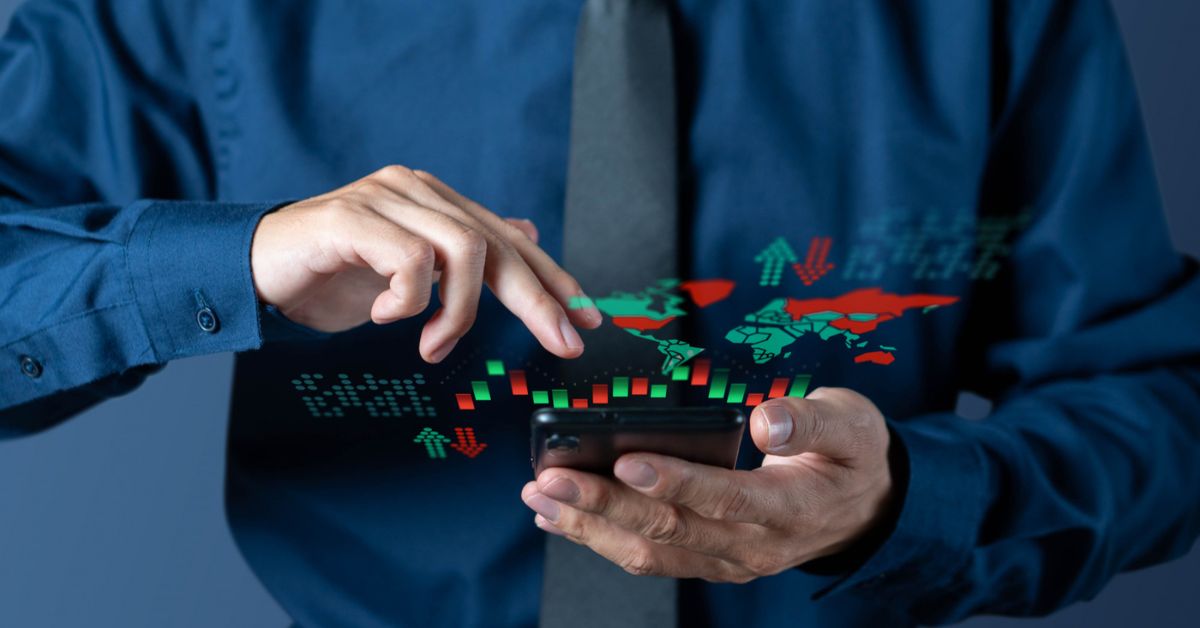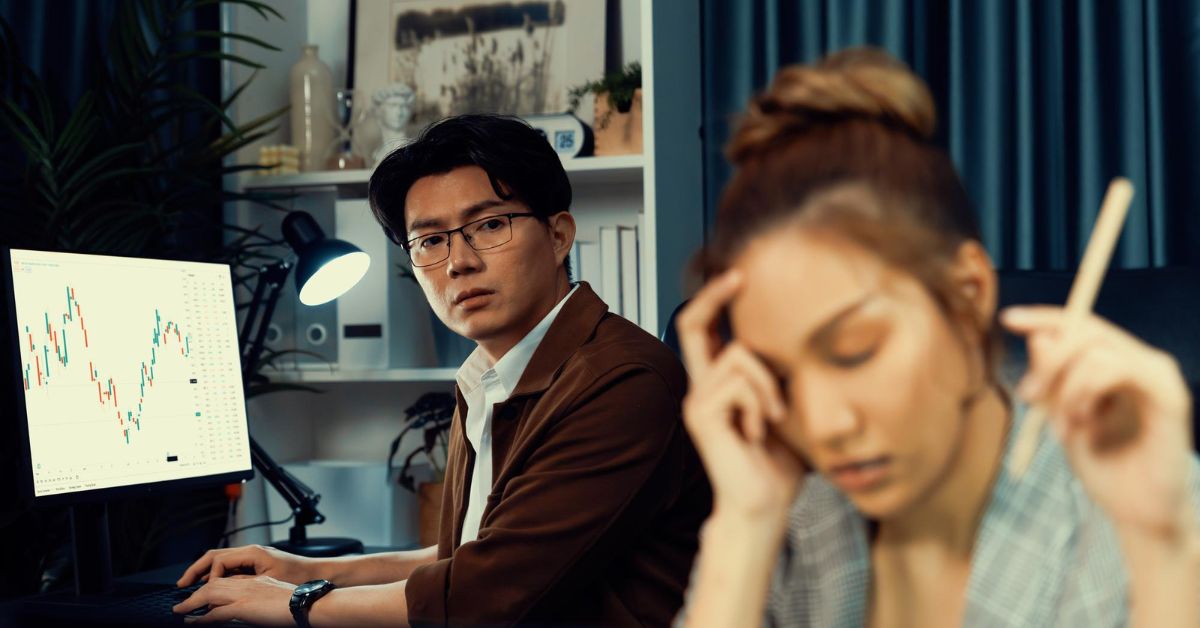Trading psychology is a critical yet often overlooked aspect of successful trading. Many traders focus solely on strategies and market analysis, neglecting the mental and emotional components that influence their decisions. Your trading performance will improve much if you learn and control trade psychology.
In this comprehensive guide, we will explore essential trading psychology questions to help you navigate the mental challenges of trading. From managing risk to coping with losses, these insights will equip you with the knowledge to develop a resilient trading mindset.
Prime XBT, a reliable crypto trading platform, offers excellent resources and tools to help traders succeed. Using Prime XBT can provide you with the stability and support needed to manage your trades effectively. So, join PrimeXBT today! Use promo code PRIMEOTT to receive a +7% bonus on your deposit.
What is Trading Psychology?

Trading psychology refers to traders’ emotional and mental state. It significantly impacts decision-making and trading outcomes, making understanding trading psychology crucial for success. Emotions can often cloud judgment, leading to poor decisions.
Recognizing the role of psychology helps traders manage emotions. Mastering trading psychology can enhance overall trading performance. It involves being aware of psychological biases. Traders must develop strategies to control their emotions.
Common Psychological Challenges in Trading
The following are the most common psychological challenges that traders should be aware of.
Fear and Greed
Fear and greed are powerful emotions in trading. It can lead to hesitation and missed opportunities. Greed can cause overtrading and excessive risk-taking. Managing these emotions is essential.
Overconfidence
Overconfidence often results from a series of wins. It can lead traders to take unnecessary risks. Staying grounded and realistic is crucial.
Impatience
Impatience pushes traders to rush trades. This often results in suboptimal decisions and missed opportunities. Patience is key to successful trading.
Revenge Trading
Revenge trading happens after losses. Traders try to recover losses quickly, often making hasty decisions. This can lead to further mistakes and larger losses.
Key Trading Psychology Questions
Addressing important trading psychology questions is critical for creating a successful trading mindset. These questions assist traders in better understanding their emotions and habits. By considering these factors, traders can improve their decision-making process.
How to Develop Trading Psychology?
Developing trading psychology is crucial for consistent success. It involves building mental and emotional resilience. Here are key strategies to help you create a strong trading psychology.
Self-Awareness
Start by understanding your emotions and how they influence your trading decisions. Recognize when fear or greed is affecting you. Being self-aware helps you identify emotional triggers.
It is the first step in managing your psychology effectively. Consistently check in with your feelings. This practice will help you stay grounded and make more rational decisions in trading.
Set Realistic Goals
Establish clear, achievable trading goals to stay focused. Unrealistic goals can lead to frustration and emotional trading. Break down large goals into smaller, manageable steps. This makes progress easier to track and maintain.
Realistic goals keep you motivated and focused. Consistently review and adjust your goals as needed. This helps you stay aligned with market changes and personal growth.
Create a Trading Plan

A solid trading plan provides a roadmap for your trading activities. It outlines your strategies, risk management, and goals. Following your plan helps you avoid impulsive decisions. Stick to your plan even when emotions run high.
This consistency will improve your trading discipline. Review and update your plan regularly to ensure it remains effective and relevant to your trading style.
Practice Discipline
Discipline is crucial for successful trading. Follow your trading plan strictly and avoid making decisions based on emotions. Set rules for entering and exiting trades. This reduces the impact of emotional trading.
Following your rules consistently will build confidence. Over time, disciplined trading will become a habit, improving your overall trading performance and results.
Manage Stress
Stress is a common part of trading, so managing it effectively is essential. Techniques like mindfulness, meditation, and exercise can help reduce stress. Identify your stress triggers and address them proactively.
Regular breaks and a balanced lifestyle also contribute to stress management. Reducing stress improves decision-making ability, which helps maintain a clear and focused mind during trading.
Learn from Mistakes
Mistakes are inevitable in trading, but they offer valuable learning opportunities. Analyze your trades to understand what went wrong and why. Reflecting on mistakes helps prevent repeating them.
Use each mistake as a stepping stone to improve. This approach fosters continuous growth and learning. Embrace mistakes as part of the learning process. This mindset shift will enhance your trading skills.
Continuous Learning

The market constantly evolves, so continuous learning is essential. Attend webinars, read books, and follow market trends to stay updated. Expanding your knowledge base helps you adapt to changes.
Being well-informed enhances your trading strategies. Consistent learning keeps you competitive and prepared. Invest time in learning new techniques and tools. This commitment will pay off in improved trading performance.
Keep a Trading Journal
Document all your trades in a trading journal. Include details like entry and exit points and the emotions felt. Reviewing your journal helps identify patterns and areas for improvement. This practice offers valuable insights into your trading behavior.
Regular reflection on your trades enhances self-awareness. It also helps you refine your strategies over time. A trading journal is a powerful tool for growth.
Seek Support
Joining trading communities or finding a mentor provides valuable support. Sharing experiences and getting advice can boost your confidence, and learning from others’ experiences helps you avoid common pitfalls.
Support from a network can offer new perspectives. Engaging with a community keeps you motivated and provides accountability, which is crucial for discipline. Building relationships with other traders enhances your trading journey.
Stay Positive
Maintain a positive attitude, even during losses. Positivity helps you stay motivated and resilient. Focus on long-term success rather than short-term setbacks. A positive mindset enables better decision-making.
It also helps you recover quickly from losses. Surround yourself with positive influences and avoid negative thinking. Staying positive will enhance your overall trading experience and success.
How Important is Psychology in Trading?

Trading psychology plays a crucial role in determining a trader’s success or failure. A trader’s emotional and mental state directly influences decision-making. While strategy and analysis are important, they are often overshadowed by emotions like fear, greed, and overconfidence. Understanding trading psychology helps traders make better decisions, manage risk, and stay disciplined. It is the difference between consistent profit and significant loss.
Without proper psychological management, traders may fall into the trap of impulsive decisions. For example, fear can cause hesitation and missed opportunities, while greed can lead to overtrading and excessive risk-taking. On the other hand, a calm and disciplined mindset allows traders to stick to their strategies and avoid emotional reactions. Developing mental resilience is key to navigating the volatility of the market.
Psychology also helps traders cope with inevitable losses. A strong mindset enables quick recovery from mistakes and avoids the temptation to engage in revenge trading. By understanding emotions and practicing psychological discipline, traders can foster better decision-making, risk management, and long-term success. Ultimately, trading psychology is a fundamental skill every trader must develop for sustained profitability.
How Many Traders Fail Due to Trading Psychology?
A significant percentage of traders fail due to issues related to trading psychology. Research suggests that over 90% of retail traders lose money, with many failing because of emotional and psychological factors. Emotions like fear, greed, and overconfidence often lead traders to make impulsive decisions that deviate from their strategies.
The inability to manage stress and emotions is a leading cause of trading failure. Traders who act on emotion rather than following a disciplined plan often make poor trades. This emotional instability can lead to significant losses, creating a cycle of frustration and bad decision-making.
Additionally, psychological biases such as loss aversion (fear of losing) or anchoring (focusing on irrelevant past information) can cloud judgment, making it harder to take profitable opportunities. Many traders abandon their strategies after suffering from a few losses, which exacerbates the issue.
Ultimately, the majority of traders who fail do so not because they lack trading skills but because they fail to manage their psychology effectively. Building a strong mental approach to trading is critical for long-term success.
How to Be Aggressive in Trading Psychology?
In trading psychology, being aggressive doesn’t mean recklessly taking risks; instead, it involves being bold and confident in your strategy. An aggressive mindset is about seizing opportunities and making decisive moves when the market conditions align with your plan. Here’s how to develop a confident, assertive approach to trading while maintaining control.
Develop a Strong Strategy
Aggressive trading begins with a well-defined strategy. Know when to take large positions and where to place stops. A solid strategy gives you the confidence to act quickly. Consistently follow it, and you’ll feel more secure making aggressive moves when the market provides clear opportunities.
Manage Risk Effectively
Aggression in trading must be accompanied by risk management. To protect your capital, use tools like stop losses, position sizing, and risk-reward ratios. This ensures you’re aggressive without overexposing yourself to unnecessary risks.
You can use our stop-loss and position size calculator available at On Tilt Trading Store to set optimal stop-loss levels and determine the ideal position size.
Improve Confidence

Aggressive traders are confident in their abilities. Boost your confidence by studying the market, practicing discipline, and learning from mistakes. Confidence allows you to act swiftly, even in volatile market conditions, without second-guessing your decisions.
Embrace Opportunities
Aggressive trading means actively seeking and seizing opportunities. Don’t wait for the perfect trade, but instead, take advantage of favorable conditions that fit your strategy. Being assertive means you’re not afraid to step in when the time is right.
Avoid Overtrading
While aggression involves taking action, it’s essential not to overdo it. Overtrading can stem from emotional impulses and undermine your strategy. Focus on quality trades, not just quantity, to maintain a balanced and aggressive approach.
Stay Focused and Decisive
An aggressive trader remains focused and decisive, even in fast-moving markets. Trust your analysis and take decisive action when the conditions align. Avoid hesitation, which can lead to missed opportunities.
How Do You Determine Psychological Levels in Trading?
Psychological levels are key price points that are significant to traders. These levels are usually round, easy-to-remember numbers. Traders commonly anticipate reactions around these levels due to the psychological impact on behavior. Here’s how to determine psychological levels:
Look for Round Numbers
Psychological levels often occur at round numbers, such as 1.2000 or 10,000. Traders place orders around these levels, increasing their significance. These round numbers act as support or resistance points.
Previous Highs and Lows
Previous highs and lows are crucial in determining psychological levels. Traders often monitor these levels for potential price reversals. When the price approaches these areas, it can trigger buying or selling pressure.
Use Major Price Points
Major price points, such as 50, 100, or 1,000, often act as psychological levels. These numbers are significant to many traders, and the market often reacts strongly when these levels are approached.
Observe Market Sentiment
Market sentiment plays a key role in identifying psychological levels. When many traders focus on a particular level, it gains psychological significance. Sentiment-driven price movements can strengthen these levels.
Watch for Price Reactions
Price reactions can confirm psychological levels. If the price struggles to break through a round number, it acts as resistance. A bounce off such a level often confirms its psychological importance.
Use Technical Indicators
Technical analysis tools can help identify psychological levels. Moving averages, Fibonacci levels, and trendlines can align with round numbers. These indicators can validate the significance of psychological price levels.
Monitor Volume Spikes
Volume spikes can indicate the strength of a psychological level. The increased trading volume shows heightened interest at a specific price, and strong volume around key levels confirms their importance in the market.
Read More: Trading Psychology Rules: A Comprehensive Guide
Conclusion
Trading psychology is crucial for success in the markets. Emotional control and discipline are essential for making rational decisions. Understanding psychological levels can improve your trading strategy. Mastering emotions helps avoid pitfalls like panic selling and overtrading.
Are you tired of losing money due to panic selling, FOMO, overtrading, or bag holding? We recommend the Vestinda trading app. Vestinda eliminates emotional decision-making with automated crypto trading strategies. This helps you trade more effectively and confidently, reducing emotional risks.



